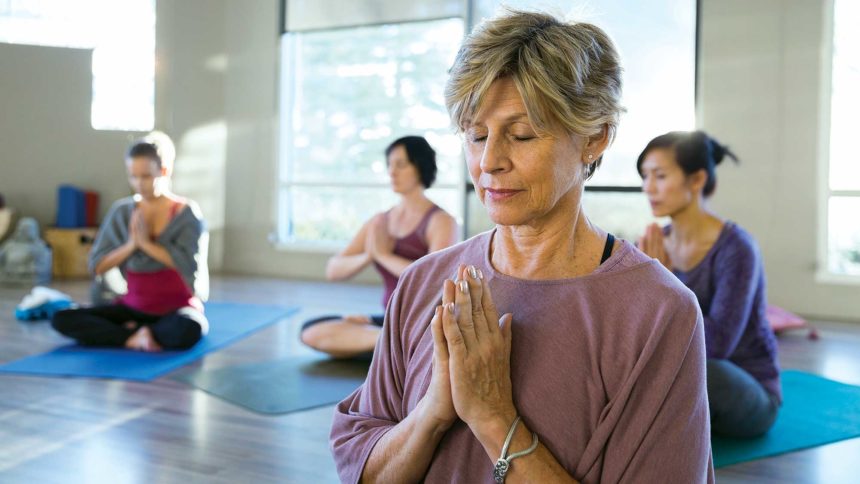
Meditation can improve the well-being of older adults, according to findings published in PLOS ONE on Friday.
A study on an 18-month meditation program was the longest randomized trial ever on meditation training. It examined how well the program worked in 130 people between the ages of 65 and 84. All of the participants were from France.
The meditation program included a nine-month mindfulness module and a nine-month loving kindness and compassion module. People completed the modules weekly in group sessions, and also during daily home practice and at one retreat day. The team compared the program training to a group that did English language training and a control group that didn’t do an intervention.
Namely, meditation improved awareness of feelings and surroundings, which can support a sense of calm and deep satisfaction. It also improved connection, which includes feelings of gratitude and can support better relations with others. Finally, the program improved insight, or self-knowledge and understanding of how thoughts and feelings impact our perception. Insight can change unhelpful patterns of thoughts about individuals and the world.
“In our study, we tested whether long-term meditation training can enhance important dimensions of well-being,” Marco Schlosser, a researcher at University College London Psychiatry and University of Geneva, said in a statement. “Our findings suggest that meditation is a promising non-pharmacological approach to support human flourishing in late life.”
Not everyone who participated had equal benefits; some people with lower psychological well-being at the start of the program had greater improvements compared to those who already had higher levels of well-being to start with.
“By showing the potential of meditation programs, our findings pave the way for more targeted and effective programs that can help older adults flourish, as we seek to go beyond simply preventing disease or ill-health, and instead take a holistic approach to helping people across the full spectrum of human well-being,” said Antoine Lutz, an author from the Lyon Neuroscience Research Center in France.



